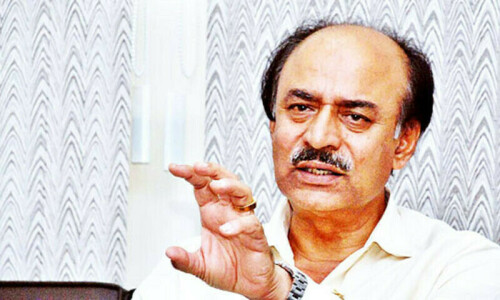PAKISTAN’S agriculture sector has been in distress for a very long time owing to poor policies and official neglect. This is reflected in dwindling crop yields, decreasing farm incomes and increasing rural poverty and food prices. Consequently, the share of agriculture in the national GDP has diminished to 19pc from 27pc in the last two decades. Hence, when Minister for National Food Security and Research Syed Fakhr Imam blames past governments for having neglected this important sector it is difficult to disagree with him. But the question is: what has stopped the present administration from revamping the sector and reforming official agriculture policies to tackle the issues it has been facing? The sad fact is that the government has shown little interest thus far in working out a long-term solution to factors impeding the growth of agriculture supply chains. It has preferred the usual short-term approach of handing out untargeted subsidies that seldom reach the smallholders who work almost 90pc of the arable land, and pursuing crop procurement policies that have thrown the private sector out of competition and discouraged farmers from shifting to value-added crops. Mr Imam’s claim that the government is working on policies for the development of agriculture in order to create an environment in which farmers get a fair return on their produce remains to be tested.
Multiple factors are to blame for diminishing agricultural productivity. These include uncertain irrigation water availability, unpredictable weather patterns, underdeveloped cold storage facilities, low investments in extension services and research, rising input costs, and lack of fiscal and policy incentives for farmers to adapt to new technology-based farm practices. Surprisingly, unlike other crops, rice yields have more than trebled in the last few years because of investments by the private sector in hybrid rice technology, resulting in additional income for rice farmers in Sindh and Punjab and an increase of more than $1bn in export revenues. This indicates that the government could revive the agriculture sector by investing in research, involving the private sector in supply chains, promoting use of modern technology and helping farmers adapt to international farm practices. Agriculture is still the mainstay of Pakistan’s economy as it employs over 40pc of the workforce, provides raw materials for more than two-thirds of merchandise exports, and can help eradicate poverty and end hunger besides ensuring food security. Further neglect of the sector will have huge consequences for both farmers and the economy.
Published in Dawn, October 19th, 2020











































